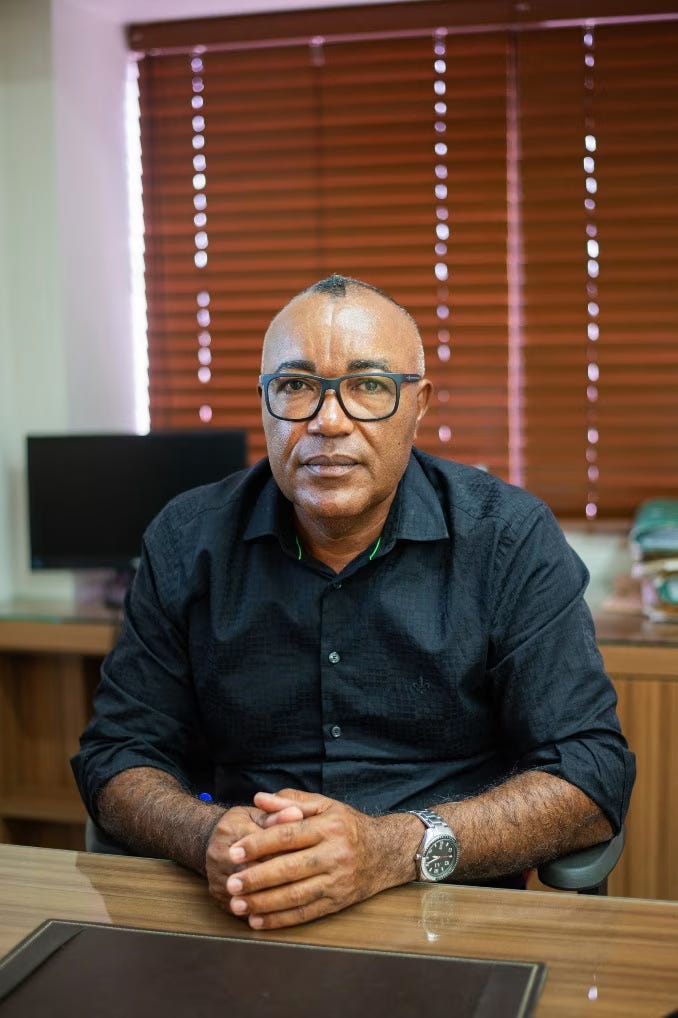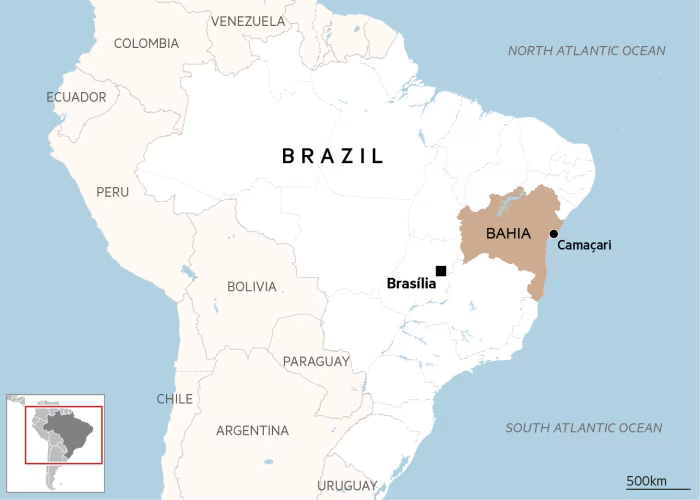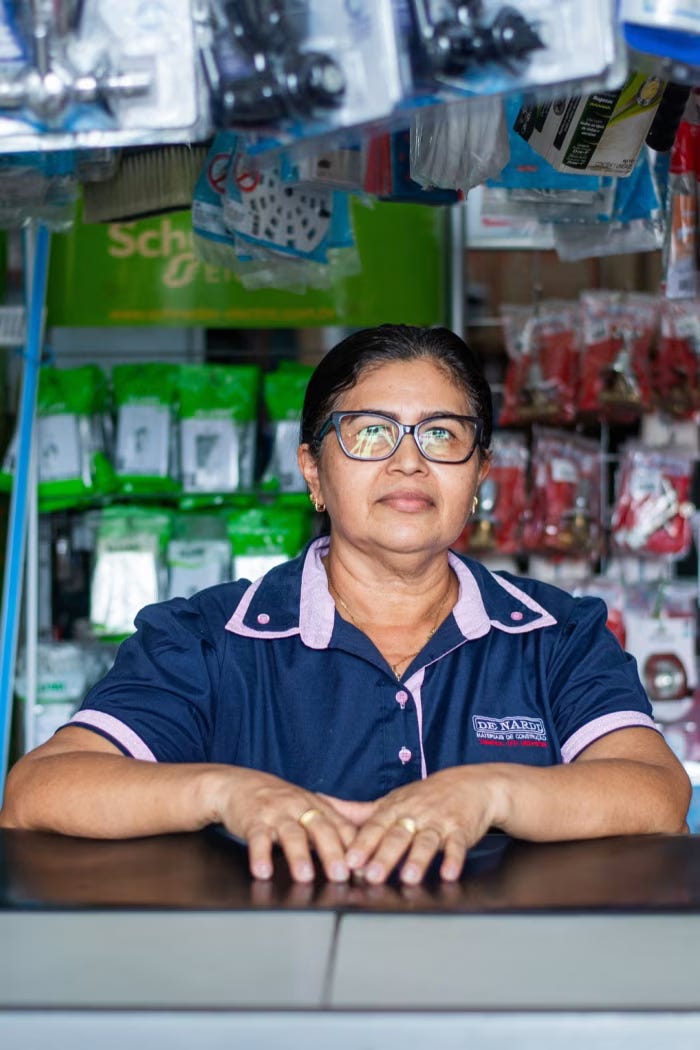The town that welcomed a Chinese car plant — only for a ‘slavery’ scandal to hit
Allegations of labour abuse on Brazil building site cast a shadow over BYD’s plan for its first car factory outside Asia
Source: https://www.ft.com/content/191f7f7e-be4d-46eb-913a-90362f37c8cd
Michael Pooler in Camaçari
A $1bn Chinese investment to build an electric vehicle plant, championed by Brazil’s President Luiz Inácio Lula da Silva, was meant to breathe new hope into Camaçari, an industrial city rocked by US automaker Ford’s departure four years ago.
But on a development that carmaker BYD sold to locals as a “Brazilian Silicon Valley” with the promise of 20,000 jobs, diggers and mobile cranes lay idle underneath the blazing sun one recent afternoon.
Following inspections of the site and construction workers’ accommodation in December, officials “rescued” 163 Chinese nationals — all now returned home — from allegedly “degrading” conditions that authorities likened to slavery.
The scandal highlights one way in which Chinese companies’ attempts to expand high-value manufacturing overseas can come unstuck at a time when concerns are mounting over the Asian superpower’s dominance of global export markets for green tech.

“This isn’t an isolated incident worldwide in how Chinese companies operate,” said Ryan Berg, director of the Americas programme at the Center for Strategic and International Studies in Washington, who highlighted complaints over alleged environmental and human rights abuses in other Chinese-funded projects in Latin America.
“Going into the old Ford plant was a clear message that ‘US enterprise has abandoned you, but here we are’. The fact there are problems already is a message to other leaders keen to court Chinese investment thinking it has no costs or strings attached.”
As Beijing extends its influence across Latin America, the events at Camaçari, in the northeastern region of Bahia state, have also served as a warning to those courting Chinese capital with the aim of creating jobs for locals.
“We feel betrayed,” Antonio Ubirajara, head of the local construction workers’ union, said of the revelation that 500 Chinese workers were on the site. “Unemployment is still high in Bahia. We have a surplus of skilled labour here and it hasn’t been used.”
Chinese companies are investing hundreds of billions in manufacturing plants abroad. Direct investments stood at about $48bn last year, after almost $118bn of commitments in 2023, according to fDi Markets, an FT-owned database that tracks greenfield project announcements.
BYD, one of the world’s largest electric vehicle producers, already manufactures buses and batteries in Europe and the Americas, and has new car factories planned in Mexico, Turkey and Hungary.
Some economists view the investments in foreign facilities as a means to curtail local governments’ concerns over China dumping cheap goods on global markets and undercutting their own manufacturers. It can also offer Beijing a means of working round tariffs on its exports.
“The trend [by China] to invest abroad is a function of the resistance that Chinese auto manufacturers started to encounter as their foreign sales grew quickly, particularly in the EV sector,” said Brad Setser, a senior fellow at the Council on Foreign Relations. “It’s a response to the protection that countries started to introduce [such as] restrictions and tariffs.”
BYD’s sales boomed fourfold last year in Brazil to almost 77,000, making it the market leader for EVs and hybrids.
It had intended to begin vehicle assembly in Brazil next month, the government in Brasília said shortly before officials made their claims of abuses, which involved workers hired by Chinese contractor Jinjiang Construction. However, construction activity on the site had been partially paused since the raids, locals said.
BYD said a site visit was not possible because of Chinese new year holidays and declined interview requests. It added that construction “continues in progress, except in areas temporarily embargoed” by orders of Brazil’s employment ministry, with operations still scheduled to begin this year.
From the perimeter fence on Avenida Henry Ford, the FT in February observed a partially built giant hangar and incomplete steel structures amid mounds of earth, the odd car passing through the front gates towards pre-existing buildings.
A gang of roofers in hard hats sat on top of a giant, unfinished warehouse. Gardeners outside said work continued on the clearance and dismantling of former Ford installations, with more Brazilians now employed there.
The company says it is now prioritising local labour and has sent nearly 100 new hires to China for training.
Yet the metalworkers’ union, which represents auto industry labour, is still pressing for people from the region to be hired on production lines.
“If they act this way during construction, what will they do once [vehicle] fabrication begins?” said the union’s director Aurino Pedreira. “Will it be another Ford — spend some time here, then leave?”
Lucia di Nardi, who owns a hardware store in Camaçari, said the labour accusations made her “ashamed”, but the 57-year-old also felt the town had little choice but to continue to back BYD. Since Ford closed in 2021, sales at her family-run business have fallen by half, forcing them to let employees go and sell the delivery truck.
“Our doors are still open. [BYD] has given a lot of hope that things will get better around here. I just pray something like that doesn’t happen again.”

BYD has said it was unaware of the conditions before the raids. Agents alleged Jinjiang housed workers in overcrowded and unsanitary dormitories, lacking mattresses and adequate bathroom provision.
BYD’s local subsidiary fired the contractor and said it had “zero tolerance” for disrespect of local laws and human dignity. It has also hired a local engineering firm to ensure adherence with regulations and is establishing a compliance committee to monitor working conditions.
The labour prosecutor’s office said negotiations on a settlement were ongoing.
The company has struck a more defiant tone in its homeland, however.
A BYD spokesperson shared Jinjiang’s denials of wrongdoing on social media and said “foreign forces” had smeared Chinese brands. The contractor claimed that cultural differences and mistranslations had led to “inaccuracies” in the official Brazilian statements.
On Douyin, TikTok’s sister app, a worker named Xu posted pictures and videos of himself working at BYD’s Brazil site. “Everything was normal and all of us had accommodated ourselves to the life there,” he said.
Labour inspector Liane Durão highlighted that only 163 out of 350 Jinjiang workers were “rescued” and not the entire workforce.
Durão also said the authorities believed most of the roughly 500 Chinese workers — employed across three contractors — were brought into the country illegally because they were wrongly designated as technical specialists.
BYD said: “No worker entered Brazil irregularly.”
BYD’s decision to invest in Camaçari, a municipality of 300,000 which was ranked Brazil’s second-most violent city in 2023, followed a meeting between its founder and Lula on an official trip to China that year.
It was hailed as a vote of confidence in Lula’s green industrial policy by politicians from his Workers’ Party, which counts Bahia state as a stronghold.
The company has loaned two cars free of charge to the presidency. The federal government told the FT it was committed to the rights of immigrants, labour rights and monitoring working conditions in the country.
Bahia’s state government, which provided incentives for the development, did not respond to interview requests or questions about the total size of the support. BYD said it “[did] not have that data”.
Mayor Luiz Caetano described the investment as a “great victory” for Camaçari and said BYD was seeking to correct its mistakes. “They need to adapt and they are adapting — to the city, state and country”.
Many in the town are also keeping faith that BYD’s promises will materialise.
“A culture shock was perhaps inevitable,” says Matheus Juriti, 28, who trained as a Ford apprentice before being laid off in 2021. “Despite the unfortunate things that emerged, there are positive expectations. More money will circulate.”
Aldivan Dias, who worked on the Ford factory floor for 14 years and today runs a stationery shop, has applied for a job at a plant he hopes “will be the pride of all us who live here.”
Additional reporting by Alex Irwin-Hunt in London, Gloria Li in Hong Kong and Edward White in Shanghai






